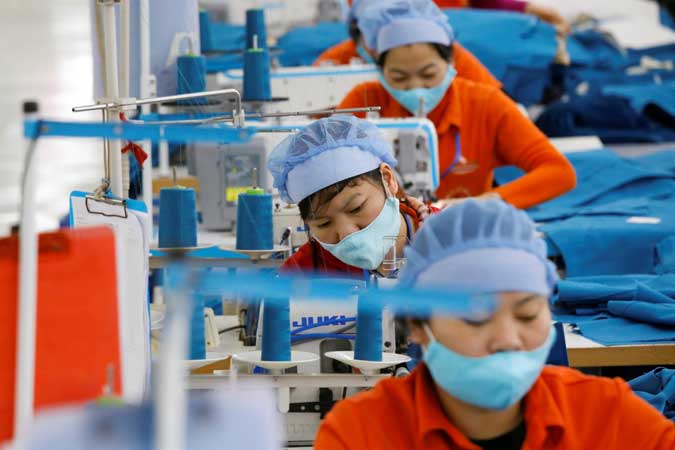Lawmaker mulls hourly pay rate

ONE of the leading economists in the House of Representatives is studying a national hourly wage rate, citing its flexibility for employers and workers as smaller enterprises find it difficult to keep up with a legislated daily wage hike.
“The International Labor Organization tends to prefer an hourly rate, because it doesn’t discriminate against part-timers or the gig economy,” Albay Rep. Jose Ma. Clemente S. Salceda said in a Viber message.
An hourly wage rate is also more flexible for enterprises and their workers and could be established across all regions, he said. “Most provincial economies also do not need workers to be in the office the whole eight hours,” he pointed out.
Ser Percival K. Peña-Reyes, director of the Ateneo Center for Economic Research and Development, said employers in the regions would find it more difficult to implement a wage hike.
“If you mandate that increase, proportionally, the impact is bigger on them, especially firms [in the] regions [where] wages are lower than what they are in [Metro] Manila,” Mr. Peña-Reyes said via telephone.
The House Committee on Labor and Employment is set to deliberate on several wage hike measures on Wednesday.
Congressmen filed several bills seeking P150 and P750 across-the-board wage hikes. Iloilo Rep. Janette L. Garin said earlier that the chamber is also looking at a wage increase of P350 to P400.
If a wage hike is implemented, Mr. Salceda said the construction, transportation and storage sectors will experience the sharpest increase in cost.
He said a “reasonable” wage hike could help employers and workers manage looming price impacts.
“The price impacts of legislated wake hikes depend on how much the hike will be, how fast the hikes are to be implemented, and which sectors are exempt,” he said.
Last week, the Senate approved on final reading a bill seeking an across-the-board P100 minimum wage increase for private-sector workers.
For Emmanuel J. Lopez, an associate professor at the Colegio de San Juan de Letran Graduate School, the wage increase would boost the purchasing power of minimum-wage workers and spur a consumer-driven economy.
“While it is true that the legislated wage hike of 100 pesos per day will likely push upward the inflation rate by 1.2 percentage points (from 3.9 to 4.2 percent), the increase will more than support the presumed increase in prices,” Mr. Lopez said in an e-mail.
“In the long run, it will be attractive to investment because of the existence of economies of scale.”
But Enrico P. Villanueva, a senior lecturer at the University of the Philippines Los Baños Economics Department, warned that a high wage increase may push the central bank to raise interest rates.
“Legislated wage hike may compel the BSP (Bangko Sentral ng Pilipinas) to increase interest rate if the magnitude of the rate hike is substantial enough to fan second-round inflation,” he said in an X (formerly Twitter) chat.
The BSP kept its key rate at 6.5% for a third straight meeting in February. Analysts are expecting the central bank to cut policy rates by the second quarter of this year.
Last week, National Economic Development Authority (NEDA) Secretary Arsenio M. Balisacan the Philippine economy could fail to meet its inflation target if a wage hike is implemented.
Inflation eased to 2.8% in January from 3.9% in December, settling within the central bank’s 2-4% target for two straight months.
The last legislated wage hike was implemented in 1989 under the Wage Rationalization Act. Since then, regional wage boards study and approve wage hikes.
House Majority Leader and Zamboanga City Rep. Manuel Jose M. Dalipe said congressmen will carefully study the proposed wage hike.
“While any increase is a step in the right direction, we must ensure that our legislative actions truly make a meaningful difference in the lives of our workers, particularly when considering the substantial challenges faced by the business sector,” he said in a statement. — Beatriz Marie D. Cruz with a report from John Victor D. Ordoñez



